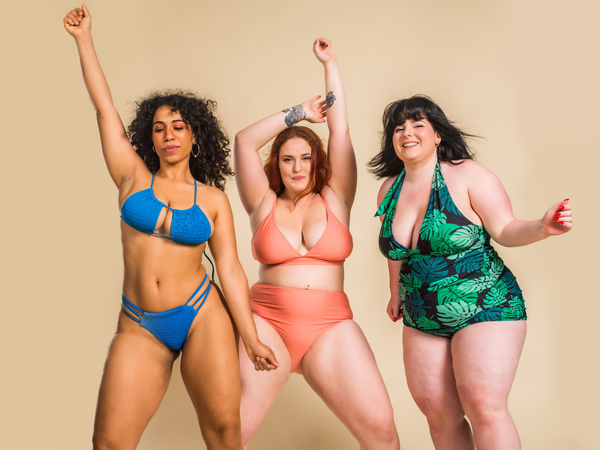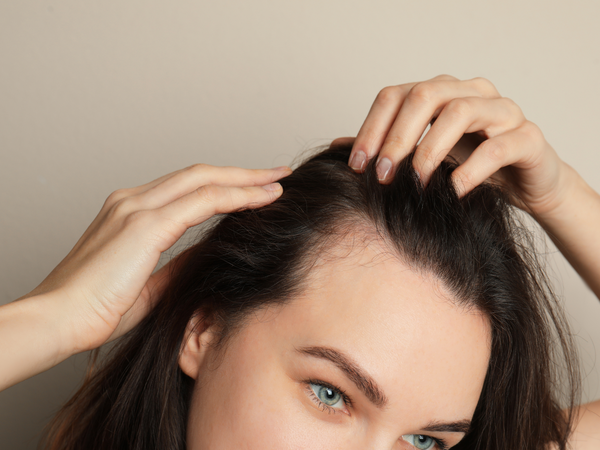The Wonders of Indigo – All the Benefits of Indigo for Hair

The Wonders of Indigo – All the Benefits of Indigo for Hair
Natural hair colour aficionados and henna fans have long been aware of the myriad benefits Indigo offers when dying your hair.
Natural indigo is skin kind, earth kind and far gentler to your hair and scalp then chemical laden high street alternatives.
If you’re new to it though, there are a lot of myths around how it works, so our hair experts have pulled together the ultimate guide to Indigo and how it works for your hair colour.
Where Does Indigo Come From?
Indigo powder is a dye that comes from the crushed leaves of the indigo plant. Indigo (Indigofera tinctoria) is a species of plant from the bean family. It may also be called ‘true Indigo’. It’s mainly grown in Asia and some parts of Africa.

The dye is dark blue in colour initially and is also used to dye silks and fabrics. There are recorded uses going back to the Romans, who used it as a form of ink, and the first recorded uses were 6000 years ago.
It was so valued to traders in the Middle Ages, it was known as blue gold.
Today, for cosmetic purposes, we use Indigo alongside Henna to naturally add dark brown and black tones. It doesn’t turn the hair blue, working alongside the Henna to add richness and depth.
How is Indigo Hair Dye Created?
To create natural Indigo powder, the leaves from the plant are soaked overnight, creating a blue water mix.
The pulp is then sun-dried until completely crispy and powdered, creating the indigo powder we use today.
The Benefits of Indigo for your Hair
There are many benefits to using Indigo to colour, or even treat your hair.
Less Allergenic:
In the west, most darker hair dyes include an ingredient called PPD, which is highly allergenic and banned in many parts of the world.
Indigo is PPD free, so is much less likely to cause an allergic reaction, although you always need to do a patch test before dying to be sure.
Ideal as a treatment for thinning hair:
Mixed with an oil, like Argan or even some gently warmed coconut or almond oil, Indigo makes an amazing hair treatment.
It’s revered in ayurvedic haircare to prevent hair fall, or hair loss, so post pregnancy or menopausal hair can benefit hugely.
Enhances the Hair Quality:
Regular use of indigo as a hair treatment can dramatically soften even very brittle 4c hair. The colouring effects also create multi-tonal ‘lights’ through the hair that promote a thicker, healthier ‘look’.
Prevents Dandruff and Eases Greasy Scalp Concerns:
Applying organic indigo powder helps reduce the overproduction of scalp oils that makes hair look greasy too quickly.
There is also evidence that indigo powder is anti-fungal, inhibiting the growth of dandruff creating bacteria on the scalp.
What Does Indigo Do To Your Hair?
By itself, Indigo would stain the hair with a deep blue tint, so we recommend mixing it with Henna to get a natural, warm colour.
Unlike chemical dyes which alter the hair shaft, damaging the central layers of the hair, Henna and natural Indigo both work with the hair’s structure, supporting the keratin and adding a translucent stain to the outer layers.
How Long Does Indigo Last?
How long indigo lasts is dependent on your hair. The following conditions will affect how long the dye lasts:
· How thick your hair is
· How porous it is
· Your hair’s coil type
· Whether it is previously dyed or permed
· How dry your hair is
· How often and what you use to wash your hair
If your hair is light, and you’ve used henna to pre-stain, Indigo may last a long time. If you find it washes out quickly though, it’s much kinder to hair then traditional dyes so can be used as a treatment weekly if necessary.
If your hair doesn’t take fully with indigo the first time, adding a pinch of salt to the mix will help.
Can Indigo Cause Hair Loss?
No. If your hair is very coily (3c and above) you will need an extra conditioning treatment like Bhringraj to nourish and prevent drying, but it actually prevents hair loss.
How to Make Indigo Hair Oil
Indigo Hair Oil is legendary in Ayurvedic hair care for being a power pack of nourishment and shine.
To make it, boil indigo leaves, amla and bhringraj in a pan with a little water (enough to cover the mix). Let it boil dry until the sizzling sound stops. Crush, stuff into a bottle and top up with your favourite type of hair oil.
Let sit for two days then use a couple of drops warmed through for scalp massage and hair conditioning.
How to Dye Your Hair With Indigo
To get a dark brown you would mix something like 2 parts indigo to 1 part henna
Our Pure Organic Henna and Indigo packets can be purchased here
Remember that everyone's resulting hair colour will be unique, because everyone’s initial hair colour is different, and the structure and chemistry of your hair influences the end result.
And for that reason we always recommend strand testing before putting it all over your hair. See this article here about how to strand test:
Step 1 - Treat your hair with Henna.
-
In a mixing bowl, soak your Henna Powder (100 gms for short hair, 200 gms for shoulder-length hair, 300 gms for long hair) with tea or lemon juice overnight
-
When ready, prep the edges of the scalp with a barrier cream, like Odylique Ultra Rich Balm then paste on clean, product-free hair for up to two hours, depending on preferred intensity.
-
Rinse thoroughly only with water until clear. Do not use shampoo.
Step 2 - Treat your hair with Indigo.
-
Air dry your hair
-
Mix the Indigo Powder (same quantity as henna) in warm water to prepare a paste.
-
Apply on your hair, using gloves if applying with your hands, or a spatula.
-
Leave on for 45 minutes, or more, depending on preferred intensity. It’s advisable to keep it on hair for up to 2 hours to get a rich black colour.
-
Rinse thoroughly with water.
-
Wash your hair with a cleansing shampoo the next day or ideally day after.
If you want to try some of these dyes before dying your whole head, we sell testers of all of them, so you could do some strand tests.
Purchase Natural Indigo Powder >
Purchase Organic Henna Powder >
For more questions about organic, natural hair dye and how to use them, get in touch with our hair experts today.



